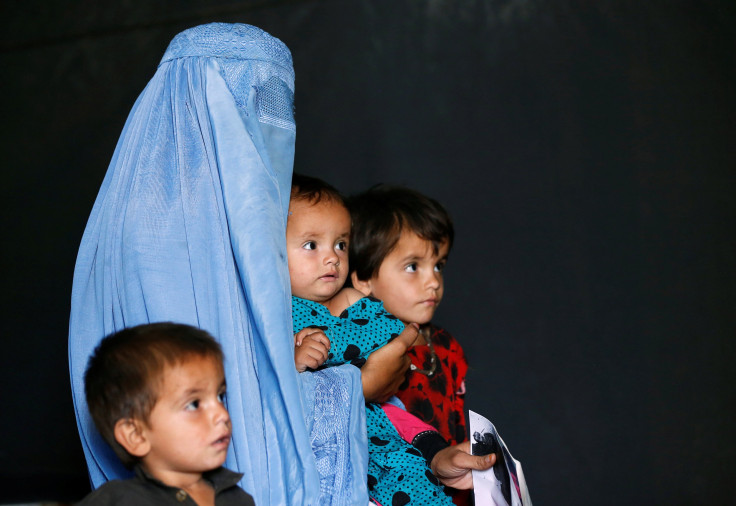Will Germany Ban Burqas In 2016? Angela Merkel Seeks To Outlaw 'Full-Face Covering'

Germany could very well be the next European country to ban burqas and the veils known as hijabs. German Chancellor Angela Merkel announced Tuesday she was in favor of banning "full-face veils."
In a speech made in Essen, Germany, to fellow Christian Democratic Union party members, Merkel confirmed her stance on the garment in a bid for her fourth term as chancellor. Merkel was re-elected Tuesday to lead the CDU party after receiving almost 89.5 percent of the delegate votes.
During the speech, Merkel said “full-facial covering should be banned," Bloomberg reported. Merkel's remarks sided with the sentiments of fellow CDU party members, who have expressed an interest in the past to ban the veils and burqas in Germany.
Burqas, a garment that covers the body from head to toe, are traditionally worn by those of Muslim faith. Hijabs are veils that typically cover a woman’s face from head to chest.
Following burkini bans over the summer on beaches in the French Riviera and a series of terror attacks across Western Europe, Germany’s CDU party and affiliate party, the Christian Social Union (CSU) parties debated banning the burqa in August. The European country had proposed banning full-face veils in public places, such as registry offices, government offices and schools, CNN reported at the time.
“The burqa is not a sign of freedom of religion, but a sign of the freedom and oppression of women. We can not accept this in Germany,” Dennis Gladiator, domestic political speaker of the Christian Democrats, told German news outlet Die Welt in August.
Merkel, who ran unopposed as German chancellor for the CDU party, has had to address growing concerns regarding refugees who have arrived in Germany seeking asylum following Merkel’s decision to open the country to thousands of immigrants in 2015. Merkel announced Thursday she would not cap the number of refugees allowed to enter Germany.
France was the first country in Europe to ban the burqa, which went into effect in 2011. Belgium and Switzerland also have bans set in place.
© Copyright IBTimes 2024. All rights reserved.






















